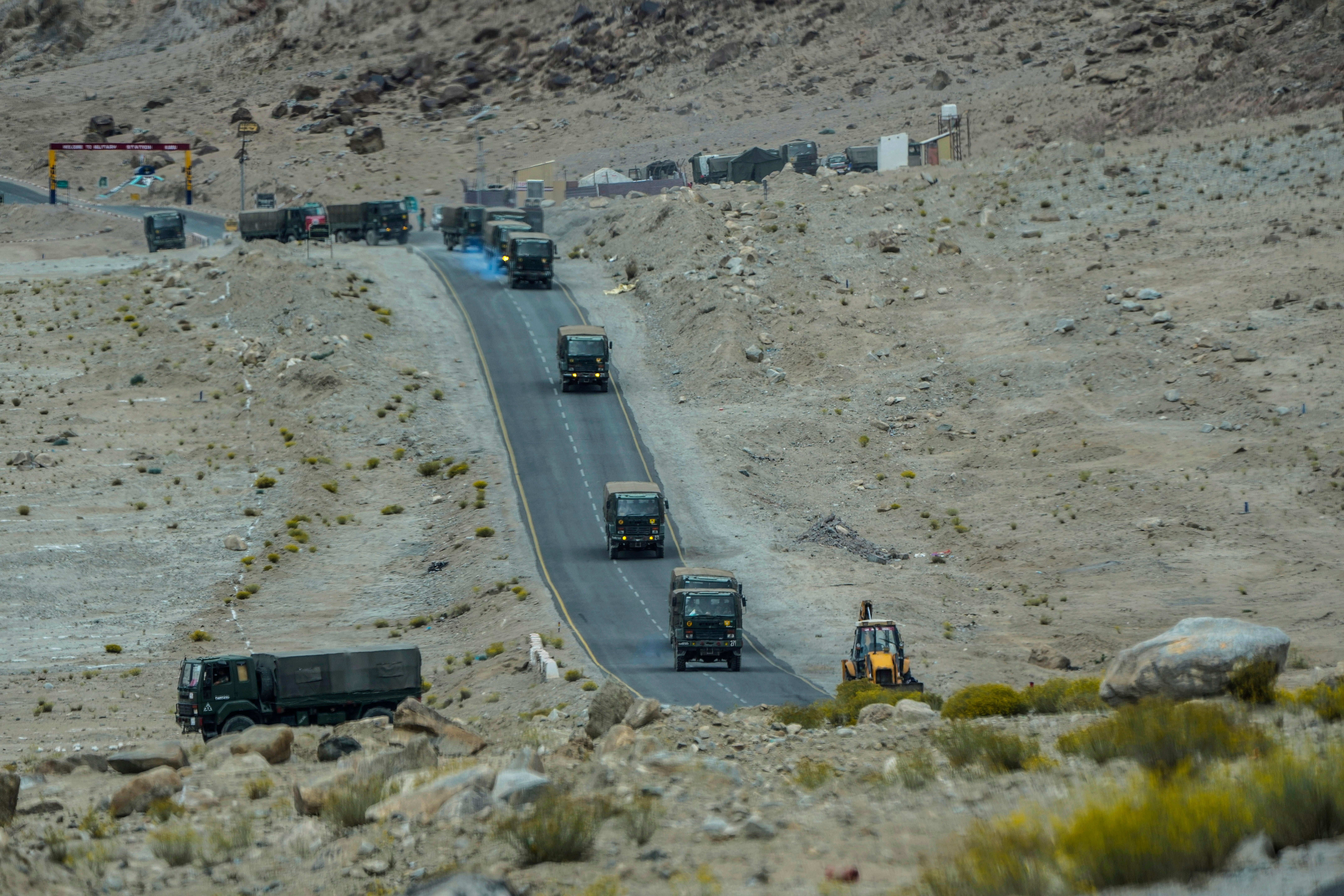UN calls for de-escalation of tensions after India-China border clash
US criticised China for ‘unilateral attempts to advance territorial claims’ on Indian borders

Your support helps us to tell the story
From reproductive rights to climate change to Big Tech, The Independent is on the ground when the story is developing. Whether it's investigating the financials of Elon Musk's pro-Trump PAC or producing our latest documentary, 'The A Word', which shines a light on the American women fighting for reproductive rights, we know how important it is to parse out the facts from the messaging.
At such a critical moment in US history, we need reporters on the ground. Your donation allows us to keep sending journalists to speak to both sides of the story.
The Independent is trusted by Americans across the entire political spectrum. And unlike many other quality news outlets, we choose not to lock Americans out of our reporting and analysis with paywalls. We believe quality journalism should be available to everyone, paid for by those who can afford it.
Your support makes all the difference.The UN chief has called for de-escalation of tensions on the India-China border after hundreds of troops from both sides clashed again, a confrontation on the disputed borders showing no signs of ceasing following deadly skirmishes in 2020.
Addressing the press briefing, Stephane Dujarric, the spokesperson for the United Nations secretary-general Antonio Guterres, said: “We call for de-escalation and to ensure that the tensions along in that area do not grow.”
Wielding fists, spiked clubs and stun guns around 300 Indian Army and People’s Liberation Army troops exchanged blows in the Tangtse area of Arunachal Pradesh’s Tawang sector, causing injuries on both sides, officials confirmed.
The skirmish which took place on 9 December was only confirmed by the Indian side on Tuesday after the news was widely reported in the country’s media outlets two days later.
Indian defence minister Rajnath Singh accused Chinese soldiers of “unilaterally chang[ing] the status quo” after transgressing into the Indian side of the Line of Actual Control, a loosely demarcated border located about 35km from Tawang, where a similar clash occurred in October 2021.
Chinese foreign ministry blamed Indian troops and said they “illegally crossed the line to block” a routine patrol of the Chinese border force.
On Tuesday, US State Department, White House and Pentagon criticised China for the latest border clashes and reiterated support to its ally New Delhi.
State Department Spokesperson Ned Price also told reporters that the US is closely monitoring the situation between India and China.
Mr Price said that the White House is closely monitoring the situation between India and China and slammed Beijing for “unilateral attempts to advance territorial claims by incursions” on borders.
“I would need to refer you to the Indians for their perspective on this as we’re going to keep our diplomatic conversations within those channels, but we do strongly oppose any unilateral attempts to advance territorial claims by incursions, military or civilian, across the border at the established Line of Actual Control, and we encourage India and China to utilise existing bilateral channels to discuss disputed boundaries,” he said.
He welcomed the quick disengagement from the clashes by both sides and said “we are in close contact with our Indian partners”.
White House Press Secretary Karine Jean-Pierre said: “We encourage India and China to utilize existing bilateral channels to discuss disputed boundaries.”
“Again, we are — we’re glad to see that there has been some disengagement on the clashes at this time.”
Pentagon press secretary Pat Ryder raised concerns over China continuing to “amass forces and build military infrastructure along the so-called LAC”.
He added that it reflects a “growing trend by the PRC (People’s Republic of China) to assert itself and to be provocative in areas directed towards US allies and our partners in the Indo Pacific”.
The border tensions overshadowed domestic politics as opposition party leaders staged a mass walkout after being denied discussion on the India-China clashes in the Parliament on Tuesday.
Opposition party leaders, including Congress, have been demanding answers from the ruling Bharatiya Janata Party and prime minister Narendra Modi himself.
Congress president Mallikarjun Kharge said, “Again our Indian Army soldiers have been provoked by the Chinese. Our jawans fought in a resolute manner and a few of them have been injured too.”
It was the first major clash between the two rival armies since the fierce June 2020 hand-to-hand combat in the Galwan Valley in the Ladakh region much further to the west - leaving 20 Indian and at least four Chinese soldiers dead.
Since the stand-off and several sporadic clashes, the armies of the two countries have held 16 rounds of talks to disengage and deescalate tension from several friction points in the high altitude Ladakh border.
Join our commenting forum
Join thought-provoking conversations, follow other Independent readers and see their replies
Comments